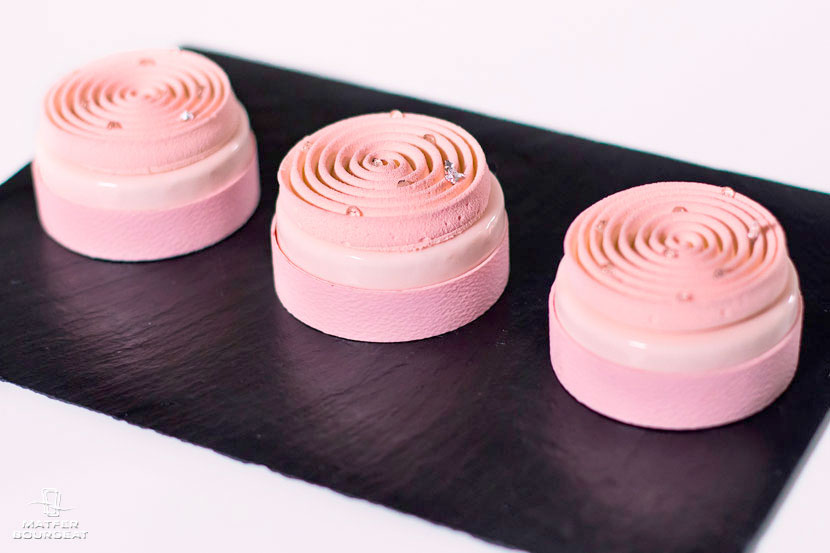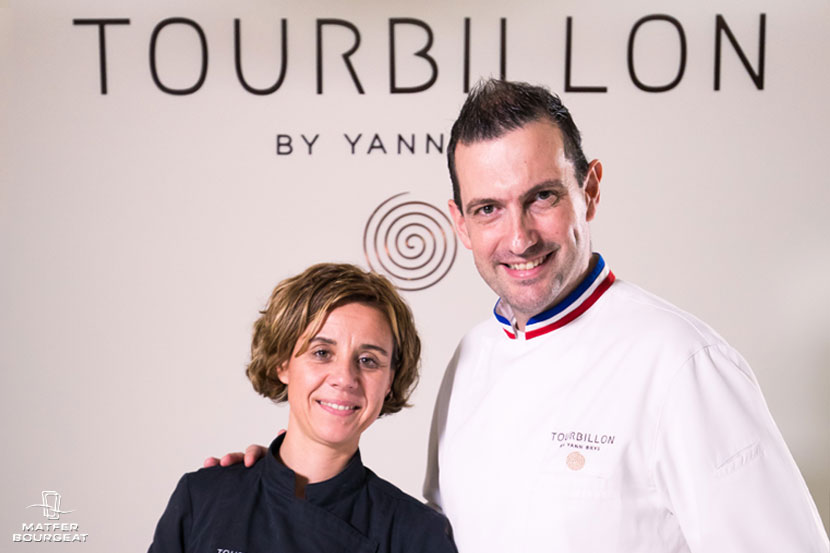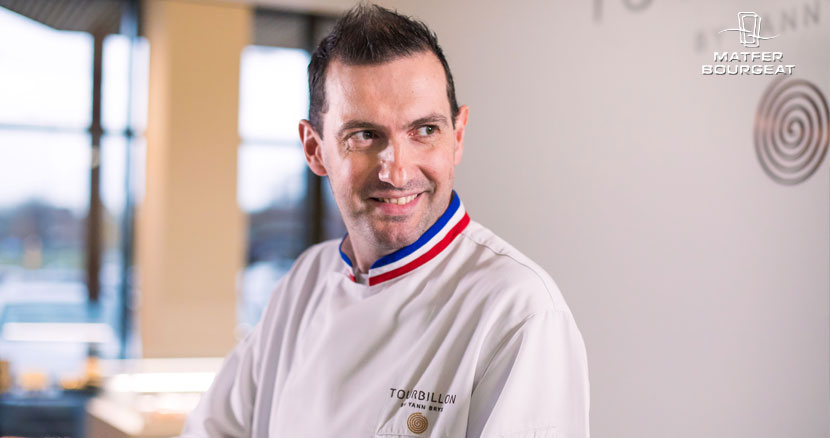He willingly defines himself as the “creator of the Tourbillon technique”, a piping of cream on a potter’s wheel that he invented in 2004, which has since been widely reclaimed by the rest of the world. Yet, Yann Brys is far more than the father of this artistic piping! At the head of a Tourbillon boutique, in the Essonne, this Best Craftsman in France – MOF 2011, who notably worked for Dalloyau, also has a little jewel in the heart of the 16th district of Paris, in the recently opened Hotel Brach.
What did your experience at Fauchon bring you with Sébastien Gaudard?
A different approach to taste! When I arrived in Paris, I had had one experience working for a MOF pastry chef in the south, where I come from. But we didn’t explore very wild flavors. With Sébastien, what was interesting was the mixing of flavors: usage of black and flavored teas, associating peppers in some recipes… all this opened my mind. For example, we would make biscuits with olive oil, which was a bit crazy in 1999!
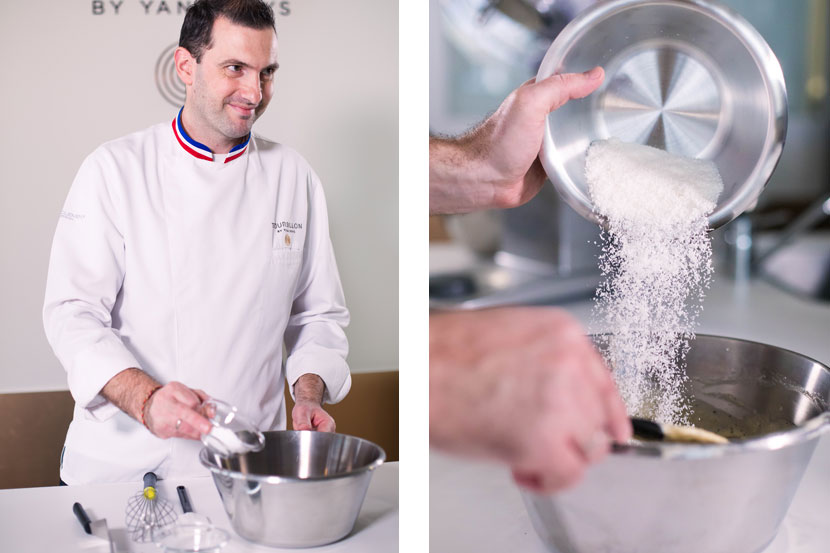
Following this, you joined the brigade at Dalloyau…
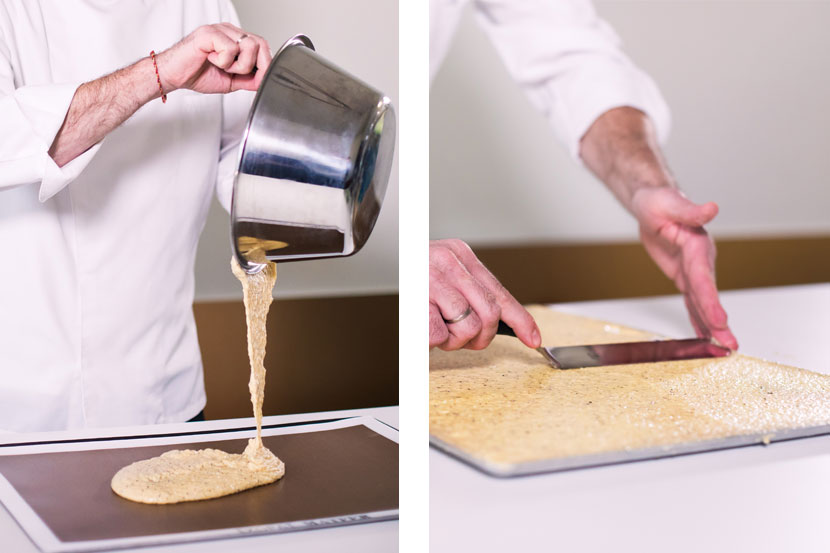
Who are your mentors?
My first pastry chef, Jean-Luc Danjou who was also my teacher at hospitality school, a MOF cuisine chef, who made me aware of the quality and what the title represented.
Then there was Philippe Urraca: it was in his shop that I started working. And for the record, when I was awarded the MOF title, he was the jury president who handed me my medal. That was great! But I have so many other mentors… Sébastien Gaudard, Christophe Adam, Pascal Niau, Gilles Marchal,.. and Nicolas Boussin (MOF pastry 2000) who has become a brother in the trade.
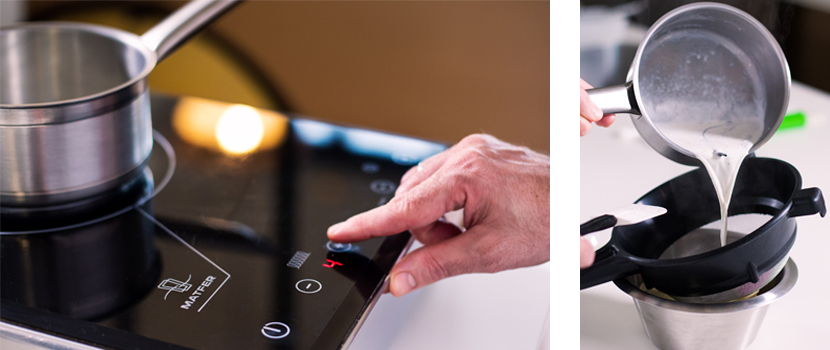
What differences are there between the work in a boutique, a large hotel or a restaurant ?
We all practice the same trade in the technical approach. In contrast though, product implementation is totally different as the constraints are not the same. In a boutique, the transport limits the shape, visual aspect and the 3 dimensionality of the product. The product must arrive intact at the client’s. In a traditional restaurant, the path is shorter, and so you can allow yourself something wilder as it is very ephemeral. We can test for example something sensitive, balanced, with something flowing inside. And in a hotel, several facets can be explored: something a little “boutique” with birthday cakes, products for the rooms, perhaps a tea room, and plated dessert.
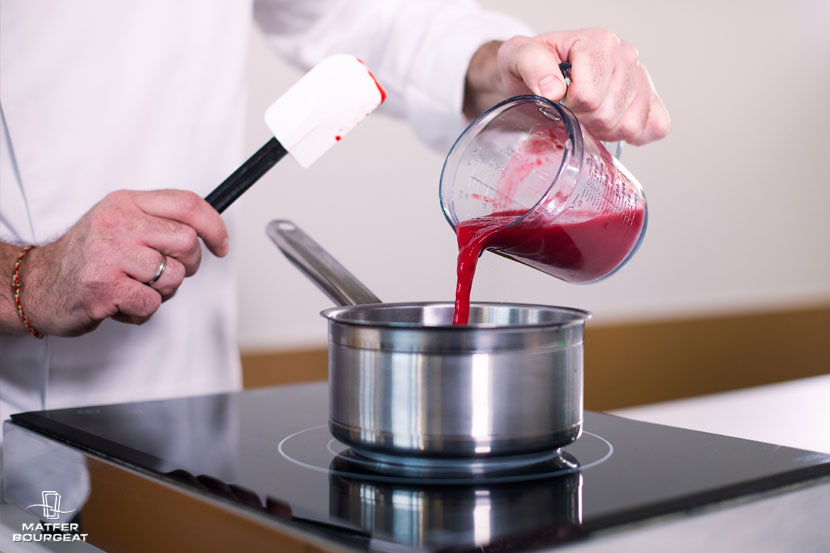
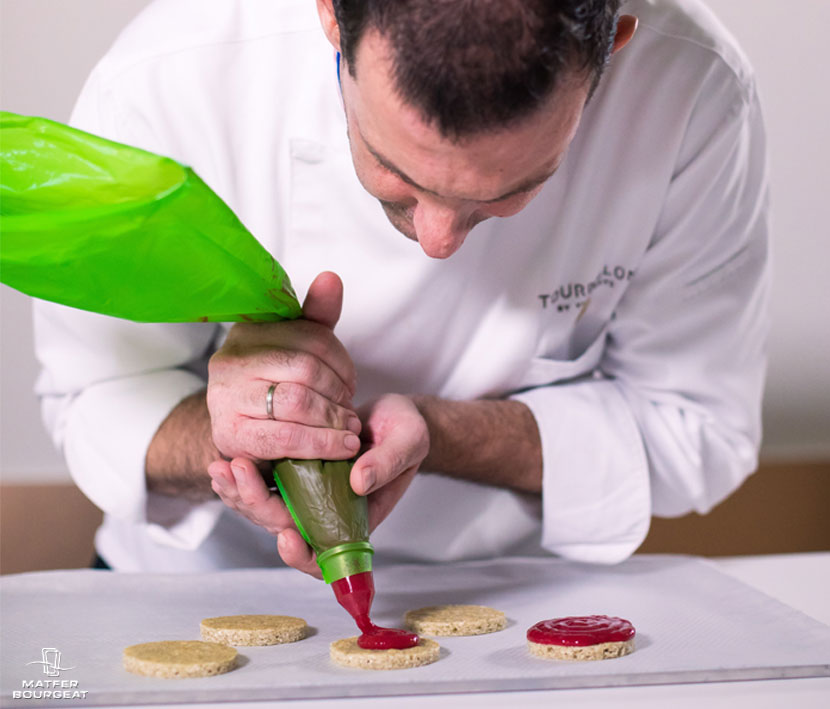
What are your other projects?
Internationally, I collaborate with a brand that has just moved to Singapore, “A Summer in Paris” for whom I have signed the entire collection. I will be going there twice a year for creations and a special range of products. Here in France, I have quite an important activity with Sogeres.
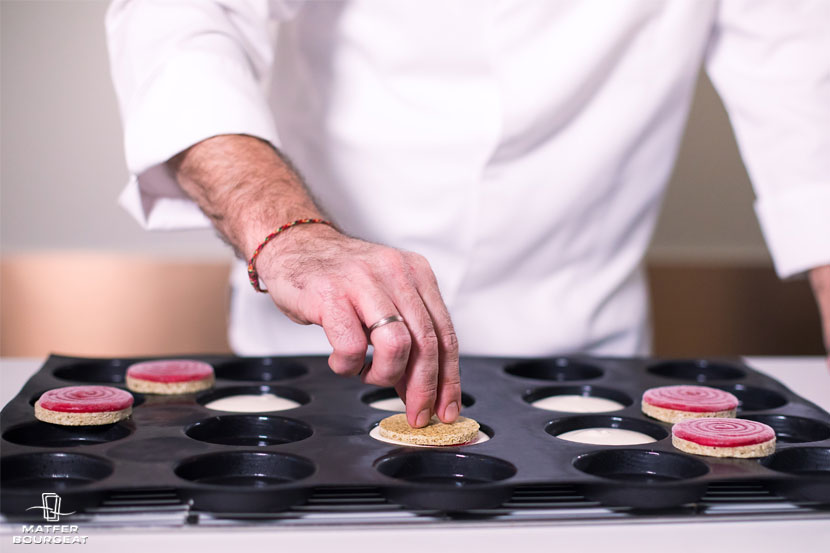
What has the MOF title changed in your life?
Many things, despite myself. To become a MOF was a dream. I thought this competition was unattainable and it was Pascal Niau who encouraged me to take it on. When I obtained the title, I felt very emotional as it represented two years of preparation! But I very quickly put things into perspective and told myself “It’s a step. I am a MOF but there’s still a long road ahead”. I challenged myself, worked hard, refined techniques, creations, types of tastes, reducing sugar in products… all that meant going further and making the MOF live, which means transmitting knowledge.
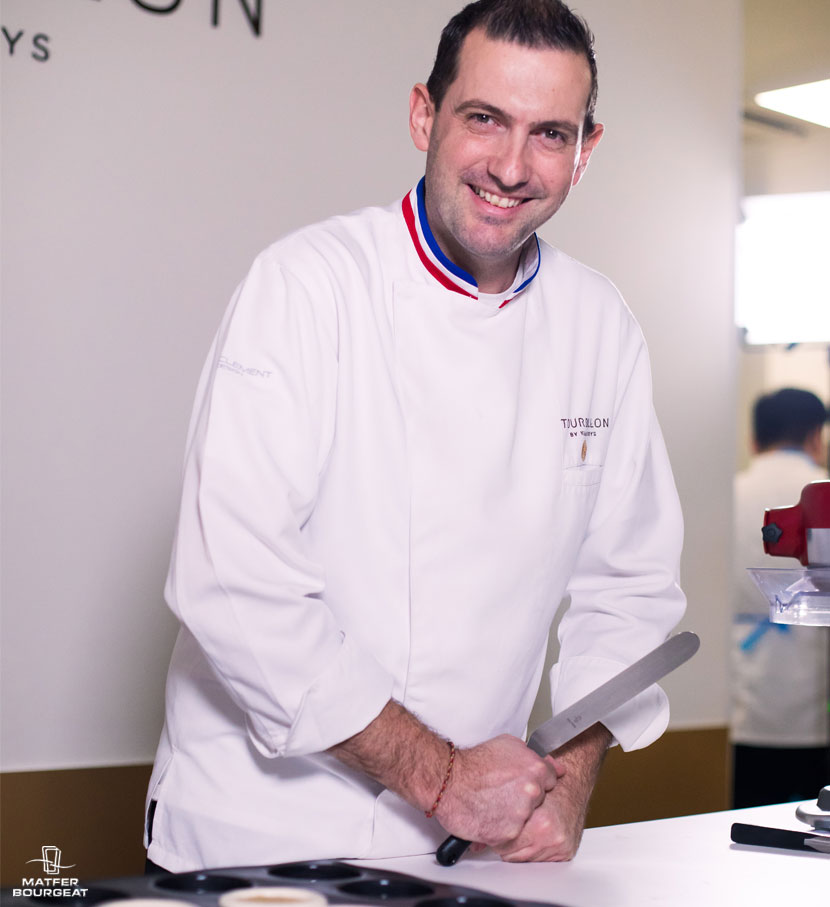
What is your view of the impact of social media and their use by “celebrity pastry chefs”?
Today, social media is an indispensable means of communication to show what is not necessarily perceived from the outside, meaning our daily work, the time required to make a cake and that justifies a price for our customers. The primary ingredients we choose, our utensils, all that has a cost. The pastry chefs in vogue, it’s good as it communicates about our trade but it is important not to be dependent on social media. Pastry is not that simple. For me, I don’t follow trends and will never release a product made by someone else.
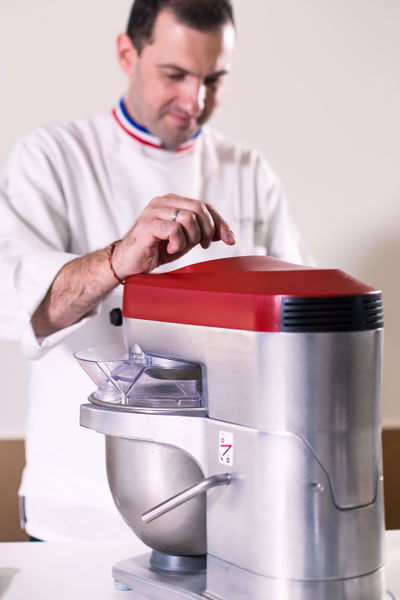
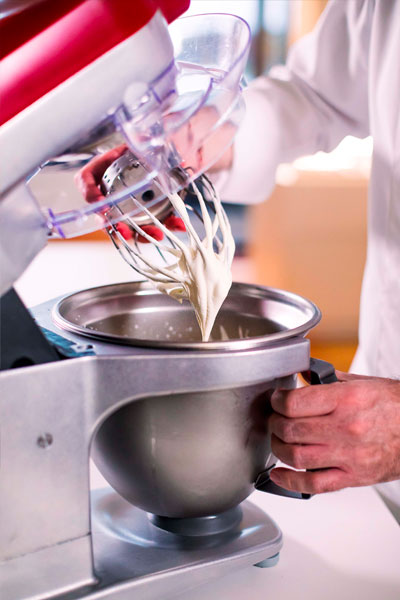
You are even copied yourself with the tourbillons…
That’s true, and I’m often asked if it bothers me. I have to say that at the beginning it did pose a problem because of social media. Someone with more visibility will indirectly appropriate the technique, even involuntarily. We’ve hardly released a creation and it’s already adopted everywhere. But in hindsight, I am proud that the tourbillon technique has been taken on. I am happy to place a classic in my trade and leave a trace, that’s how I see it now.
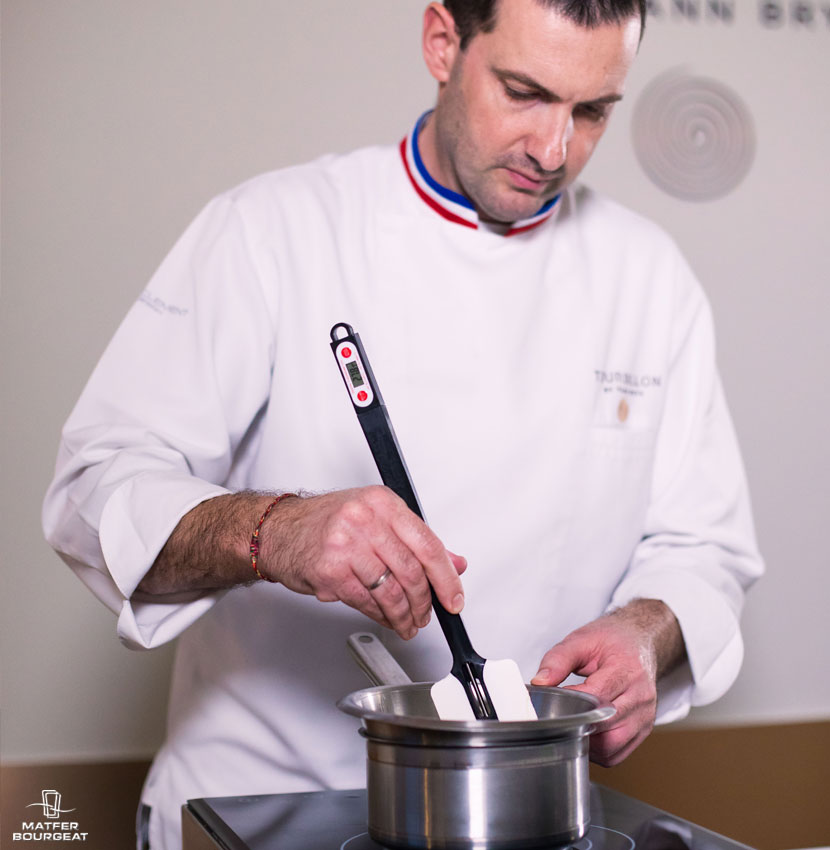
Do you find pastry training programs up to par today?
Technically speaking, for me, today’s CAP (apprenticeship program) has no value. Its content is not adapted to our daily work. Also, there are a number of people changing professions and I consider the CAP in 3 or 6 months as an aberration. It took me ten years to learn to master the technique and I still learn every day! And at the same time, all these accelerated training programs are intense in terms of technique. Apprentices are somewhat pastry commandos. They see many things but we realize that they have only touched the surface of the trade. It gives a base, but it lacks depth.
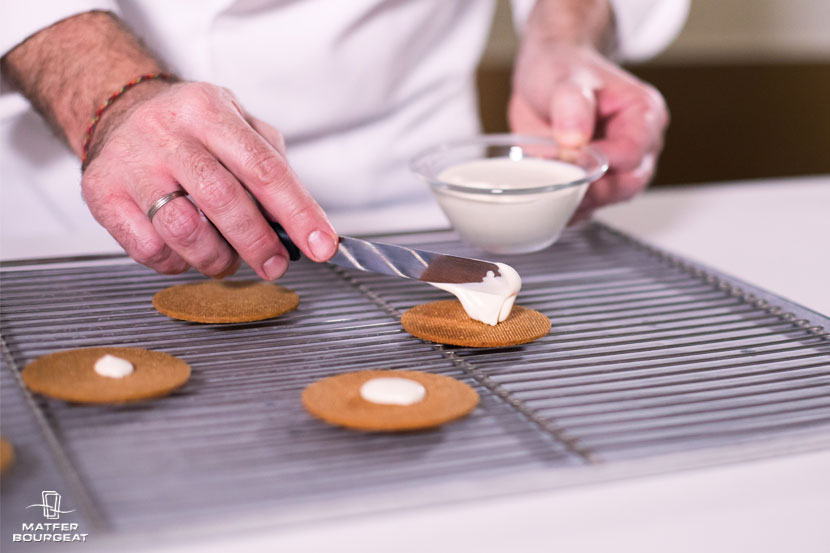
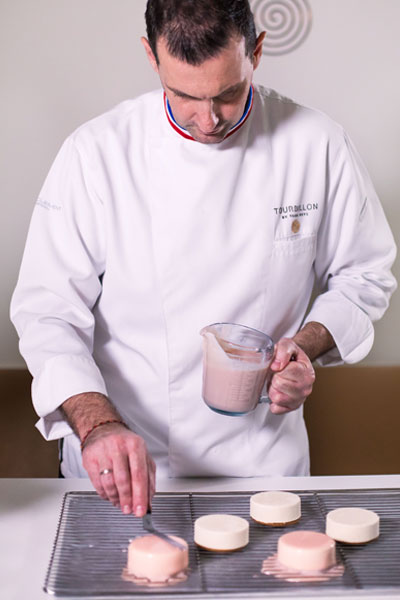
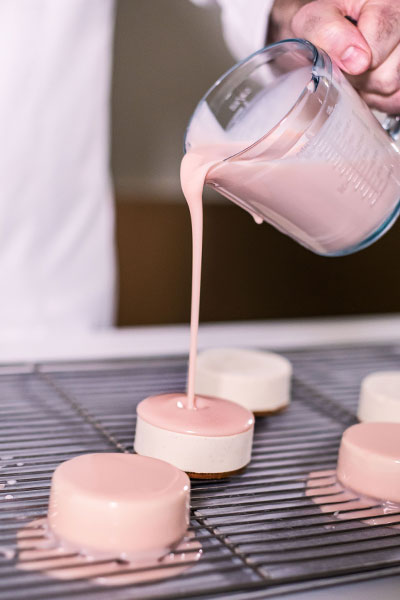
Do you think that French pastry is still shining around the world?
We are still an international reference. I travel a dozen times a year and can say that it is added value to solicit a French pastry chef. This year, I’m going to Hong Kong, Korea, Taiwan, Singapore and Japan. I have observed that apart from the Chinese, who are more sensitive to the visual rather than taste factor, other Asian countries manifest an importance in quality and therefore to French pastry.
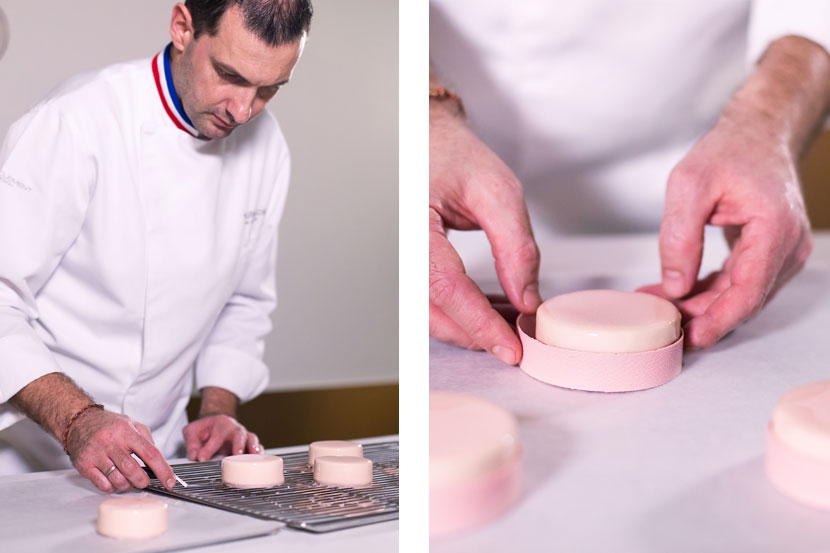
Talking of practicalities… what is your preferred utensil?
My adjustable rolling pin, which I use very often. I have had it for 21 years and it’s still flawless. I even used it at the MOF! The ends are still impeccable. At Hotel Brach, we had to send one back as it did not come from Matfer. For me, it’s the best on the market. I’m faithful to the brand!
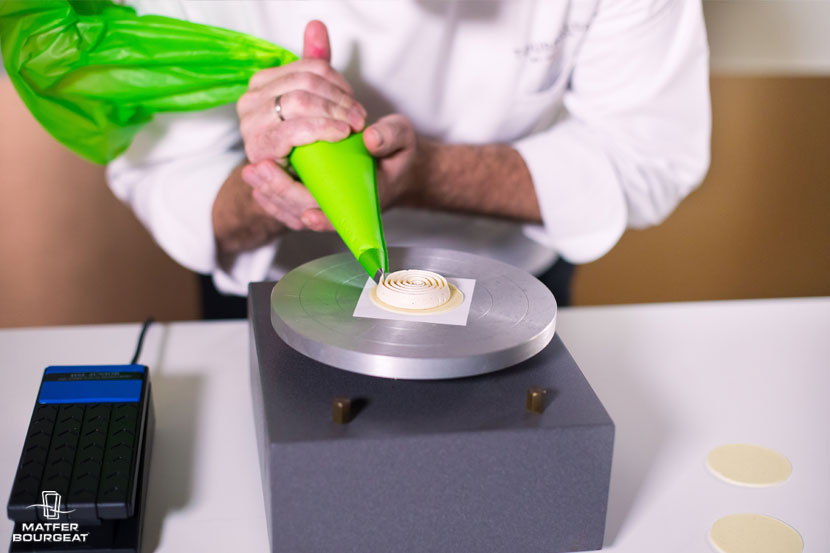
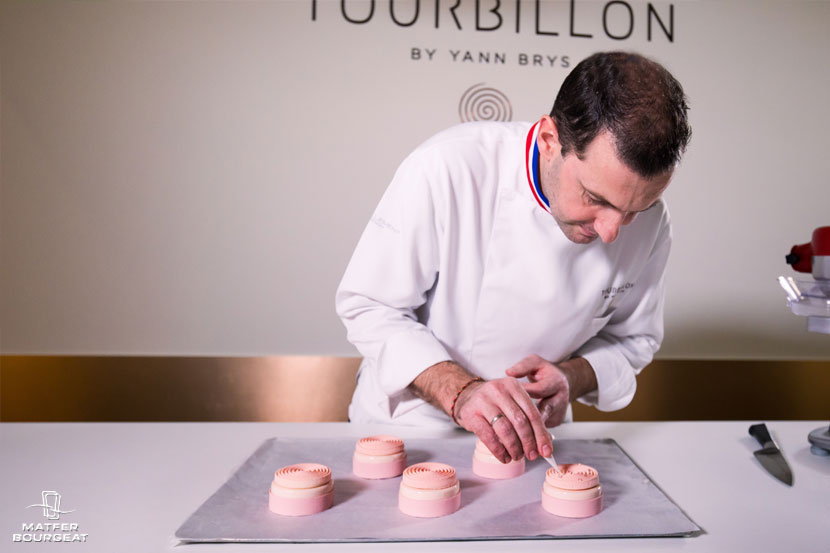
When did you first know about Matfer?
It dates! I was at hospitality school in Cannes and was working in a beautiful hotel. As I was already passionate about pastry, thanks to the establishment, I was able to order equipment from Matfer to use at home. Notably an adjustable rolling pin that I have always had! That was a really nice present that I offered myself in 1997.
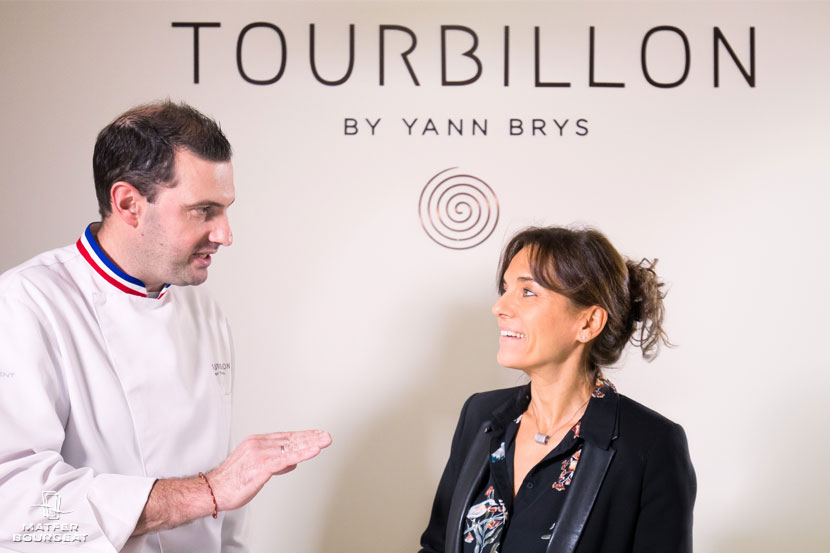
What does the brand evoke for you?
Above all, the quality of utensils and equipment. Then, the French know-how. You know, the more you develop and enrich your professional path, the more sensitive you become. For me, it’s very important this anchored know-how, creativity in development. There are so many things that we are unaware of before entering the Matfer universe. It is an added value to the brand. And then, the company brings what I expect from my suppliers: reliability and durability, a standard of constant quality. And there is also the notion of service.
